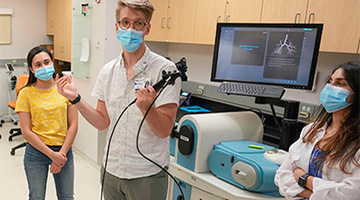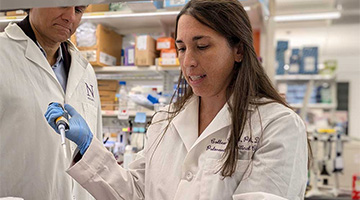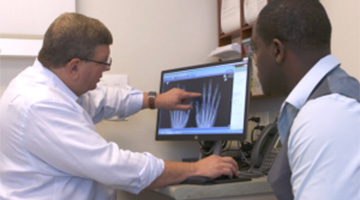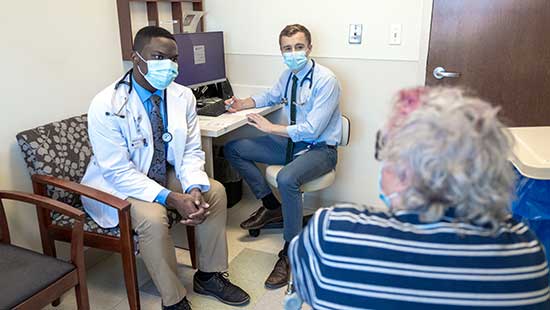Leading the future of medicine.
At Feinberg's Department of Medicine, extraordinary talent collaborates on a vibrant urban campus to drive discoveries, shape future leaders and improve the lives of patients in our communities and beyond, transforming human health and changing the practice of medicine.
Harnessing the creativity, engagement and leadership of our faculty and staff, the Department of Medicine develops advances that resonate across the nation, determine best practices and are guided by our core mission: 'Patients first.'"

What We Do

Education
We are dedicated to educating future physicians through our MD program and training the next generation of medical leaders through rigorous residency and fellowship programs.

Research
Our world-class faculty are at the forefront of medical research, conducting research across medical disciplines to address the most pressing health challenges.

Clinical Care
Our clinical affiliates provide top-ranked patient care across specialized medical fields and services. Find care by facility or by specialty.
News
Events
Jan
30
Feb
03
Feb
04
Feb
05
Health Equity
Our vision is to make Northwestern, our communities, all communities, our lives and the world a better place — with everyone having the chance and responsibility for reaching their own pinnacle of health.
